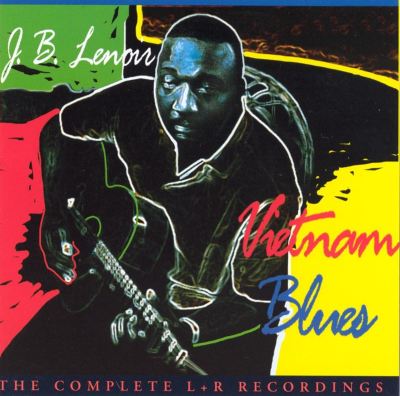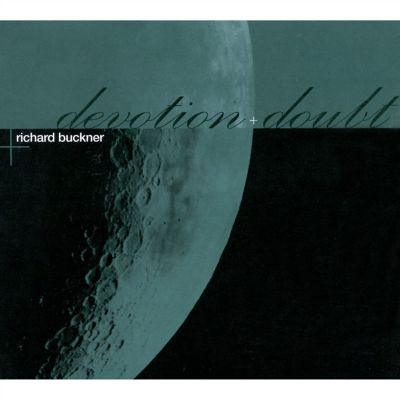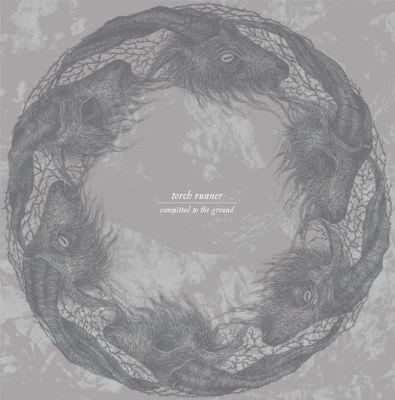Staff Picks for June 2014
June 30, 2014
Judee Sill led a troubled life that would end tragically only eight years after this 1971 debut, but the warmth and tenderness she expressed through these lovingly arranged folk-pop gems showed both a sophisticated musician and hopeful soul searching for her place in a troubled world.
June 29, 2014
Various Artists
While this may not have been the first collection of rembetika on the market, it was certainly the deepest at the time, and preceded an entire series by JSP. Divided into social and historical periods, this set offers the first story of rembetika's development as a genre; it was defined as much by government repression as it was by the outlaw life and both earlier and later Greek popular culture--the latter forced it underground again. It is also important because we hear the transition of the balalaika into urban ones that eventually became indelible part of Greece's musical signature.
June 28, 2014
Almost a decade worth of radio sessions from one of the great (mostly) unheralded indie rock groups of the late 90s/early2000's. Stripped down and direct, the songs gain additional sonic impact and emotional power from the no-frills presentation. Worth it for their transcendant cover of ELO's "Mr. Blue Sky" alone.
June 27, 2014
Slim Smith's high, plaintive vocals and his haunting, almost fragile delivery made him one of Jamaica's finest singers in the late 1960s and early '70s, both during his tenure with the Uniques and the Techniques and his subsequent solo career. This double-disc set from Trojan Records traces Smith's career with care and thoughtfulness, and every track shines with that wonderful voice, one that could sing anything from a cake recipe to the disclaimers on a ticket stub and make it sound like Heaven had sent the best ever singer in the angel choir to bless us all.
June 26, 2014
Hugh Hopper found a truly simpatico collaborator in fellow fuzz-aholic bassist Fred Chalenor, whose Caveman Shoestore band permuted into Hughscore and became one of Hopper's most successful vehicles of the '90s. Elaine di Falco's coolly alluring, affectless vocal delivery perfectly matches the often mysteriously dreamy, deeply layered and atmospheric music of the group's 1999 album, highlighted by a suitably chilly version of "Was a Friend" from Robert Wyatt's Shleep.
June 25, 2014
After finding major success as a producer with a distinct aural patina in the late-80's, Daniel Lanois turned his attention to his own material and delivered this impressive, almost-mystical solo debut which blends New Orleans R&B, rock, and an eerie, ethereal tone which sounds like a mid-July thunderstorm creeping over the Gulf.
June 24, 2014
J.B. Lenoir's final two albums before his death in 1967 may well have been his crowning achievements. Alabama Blues (1965) and Down in Mississippi (1966), both produced by Willie Dixon, were recorded for the German label L & R, and both featured stripped down acoustic arrangements that recast Lenoir as a Southern folk-blues troubadour. Lenoir's lyrics on these two albums, which have been packaged here on one CD as Vietnam Blues, approached pure poetry as he skewered racism and other cultural ailments with a fiercely focused passion.
June 23, 2014
As Outkast were in the middle of their always-on-MTV era, Trick Daddy was working his own innovative Southern hip-hop magic, and as the title here says, he was still Married to the Streets. On this thuggy, edgy effort, Midnight Star's "No Parking (On the Dance Floor)" gets twisted into "Down Wit Da South", while the Talking Heads' obscure track "Sugar on My Tongue" supplies the bounce on the supreme party cut "Sugar (Gimme Some)".
June 22, 2014
Twenty years ago, these former Boston students of jazz, having moved to N.Y.C. and lost their bassist, recorded as a reeds-guitar-drums quartet on their third album, a defining statement of the '90s New York downtown scene. Brash, incisive, and immediate, the musicians made the most of the band's new architecture with their four-way collaborative dialogues, while expressing individual voices that would remain strong into the Brooklyn jazz scene of today.
June 21, 2014
Another of 1994's lesser-known gems, Go Pop delivers post-rock that still sounds futuristic two decades later. As the title suggests, Disco Inferno explore more accessible territory, but on their own resolutely experimental terms. Found sounds and loops collide and combine with alternately languid and raging songs in ways that remain utterly fascinating.
June 20, 2014
Richard Buckner's second album works through the frustrations and intracacies of his divorce, but that shouldn't sound like a warning. Devotion+Doubt flows from emotion to snapshot to diary entry all whispered by Buckner's rich baritone. Fans of Townes Van Zandt who like their Texas folksingers heartbroke, I can't recommend this album enough.
June 19, 2014
A surprisingly straight-forward set, this pre-dub Lee Perry production finds Scratch conducting his band through minimal instrumental reggae-funk groovers, looking forward to the reverb saturation that would soon follow with suspiciously skeltal tracks like "Red Hot"
June 18, 2014
Sure, it's relentlessly bleak, alarmingly self-absorbed, and about as subtle as a morningstar to the face, but Roger Waters' first non-Ron Geesin assisted solo album (yes it is) is such a masterpiece of opulent, Cold War-era melodrama and immaculately rendered audio megalomania, that it's impossible to resist its rich, soapy embrace. Also, it has swears, a nuclear explosion, a couple of nice turns from special guest guitarist David Gilmour, and via the "Gunner's Dream," the best scream into saxophone solo ever.
June 17, 2014
Trading in his shiny, satin button down shirt for a red, v-neck muscle tee, Andy Gibb looks more like a member of Loverboy than the little brother of the Bee Gee's on the cover of 1980's After Dark. But don't let his lightning-tipped fingers fool you, Gibb still sings as softly and sensitively as ever on this underrated, if admittedly troubled follow-up to Shadow Dancing. Once again produced by the Brothers Gibb, the album also features a memorable romantic duet with Olivia Newton-John.
June 16, 2014
Criminally underrated in North America, this might be Faith No More's finest hour. Undeniable rockers like "Digging the Grave" and "The Gentle Art of Making Enemies" should satisfy the headbangers, while more left field tracks like "Just a Man" and "Take This Bottle" throw something to those who enjoy the band's risk-taking side. It's probably their best-sounding album, and perhaps their most consistent and least dated.
June 15, 2014
Professor Murder released their first and only record on Kanine in 2006 and then disappeared without a trace. Taking their name from a Mr. Show sketch about and East Coast/West Coast ventriloquist rivalry, the EP's fuzzed out bass and heavy rhythm section takes cues from early post punk such as Liquid Liquid and Gang of Four.
June 14, 2014
Two years after the death of lead singer Malcolm Owen, the Ruts met the then upstart dub magician Neil "Mad Professor" Fraser for a thrilling, still-vital sound clash.
June 13, 2014
Esquerita was the man who taught Little Richard everything he knew, and judging from the recorded evidence, Richard significantly watered down what his mentor had to offer. Esquerita's booming barrelhouse piano work is some of the most crazed ivory pounding of the first rock & roll era, and if his voice lacks a certain nuance, his wailing is powerful enough to wake the dead. This collection of over-the-top 1958 recordings is a solid introduction to an often overlooked rock & roll wildman, and if you're looking for quality voola, this disc has got it and then some.
June 12, 2014
With their blend of power metal and swedish folk influences, Falconer transport listeners to a more elegant age where men took to the sky on the back on dragons on their eighth album, Black Moon Rising. A solid album of escapist heavy metal that manages to evokes your favorite medieval fantasy without being too cheesy.
June 11, 2014
Cut in 1960, this smoking date features the alto saxophonist in the company of Blue Mitchell, pianist Walter Bishop, Jr., bassist Paul Chambers, and drummer Art Taylor. Unlike many dates the altoist cut for the label, this one is free of ballads and instead provides an impeccably arranged collection of swinging hard bop and blues. In his solos, there are already hints of his fascination with Ornette Coleman--which would come to fruition on One Step Beyond and Destination Out two years later. Those early articulations here add color and adventure to a driving, sophisticated session.
June 10, 2014
Mazzy Star's third album landed with a bit of a limp thud after the lightning success of "Fade Into You" didn't strike twice, but Among My Swan is full of the same sweet atmospheric swirl that their earlier albums exhuded. The leadoff track "Disappear" chimes and soothes with the best of the band's catalog.
June 9, 2014
After playing "The Frayed Ends of Sanity" live in Finland recently, Metallica has finally performed every song from this ugly, punishing record in concert. Its bass-less, trebly mix is oft-derided, but sonic choices and massive hits like "One" aside, it's still perhaps an underrated part of the band's legacy, and "Dyers Eve" is the most pissed-off song the band has ever recorded.
June 8, 2014
Nick Krgovich, of Vancouver's No Kids, constructs a full-blown 1960s pop album with help from a who's who of the Pacific Northwest indie pop scene including Mirah, Parenthetical Girls' Zac Pennington, and Rose Melburg. Recorded by Krgovich and producer Colin Stewart in 2005, the record feels like it could have been a hit record 40 years prior with girl group harmonies, smart orchestration, and attention to detail.
June 7, 2014
On Committed to the Ground, Torch Runner unleash a savage wave of relentless, blast beat driven grind guaranteed to leave unsuspecting listeners in a heap (or, at the very least, suffering from a mild case of tinnitus). Throw this one on if you're looking to experience 22 minutes of raw, unfiltered aggression.
June 6, 2014
Recorded with a sparse, clear, and unadorned sound that perfectly supports Guy Clark's whiskey-worn voice and his songs that tell stories of lives lived, loves found and lost, the deep cost of a fleeting moment of redemption, and old memories that enrich and then vanish like ghosts, My Favorite Picture of You is simply a wonderful, balanced gem of an album from a masterful songwriter.
June 5, 2014
Rupert Holmes recorded his debut opus when he was fresh out of music school, touching upon everything from big band swing to orchestral pop and disco. From the cinematic title onward, the album plays like a musical version of an Albert Brooks comedy-noir; all average-guy-neurosis, romantic longing and a Walter Mitty-esque underlying theme about daydreaming your life away.
June 4, 2014
Shaking up their sonic palette, the hard-touring Detroit trio headed up to Montreal to record their sixth album with Broken Social Scene producer David Newfeld. The quirky experimental twists paired with some of singer Josh Malerman's best and most personal songs made this a transformative effort within the band's already eccentric and charming catalog.
June 3, 2014
The German synth wizards discovered sequencers around the same time that Virgin Records signed the group, and the timing was fortuitous; the pulsing and percolating rhythms gave TD a beat even as their synth and Mellotron washes took listeners into deep space. The result was a hit that, like Mike Oldfield's Tubular Bells, gave a shot in the arm to the fledgling label while serving as a defining statement for the Berlin School, which would influence electronica for decades to come.
June 2, 2014
Gudrun Gut's solo debut -- which arrived after decades of collaborations as well as her work with her label Monika -- is a headlong dive into shadowy, seductive tone poems cataloging dreams, desires and memories. The way Gut fuses minimal techno with nods to big band, cabaret and more allow her to branch out in emotional and musical directions that are surprisingly haunting.
June 1, 2014
This wasn't as popular as Swiss Movement or The Electrifying Eddie Harris -- two other excellent releases for Atlantic -- but this features some of the musician's meanest and funkiest saxophone work. Fans of Brand Nubian and Digable Planets will recognize some of the content. Guitarist Ronald Muldrow, father of Georgia Anne Muldrow, shines on "A Little Wes."





























